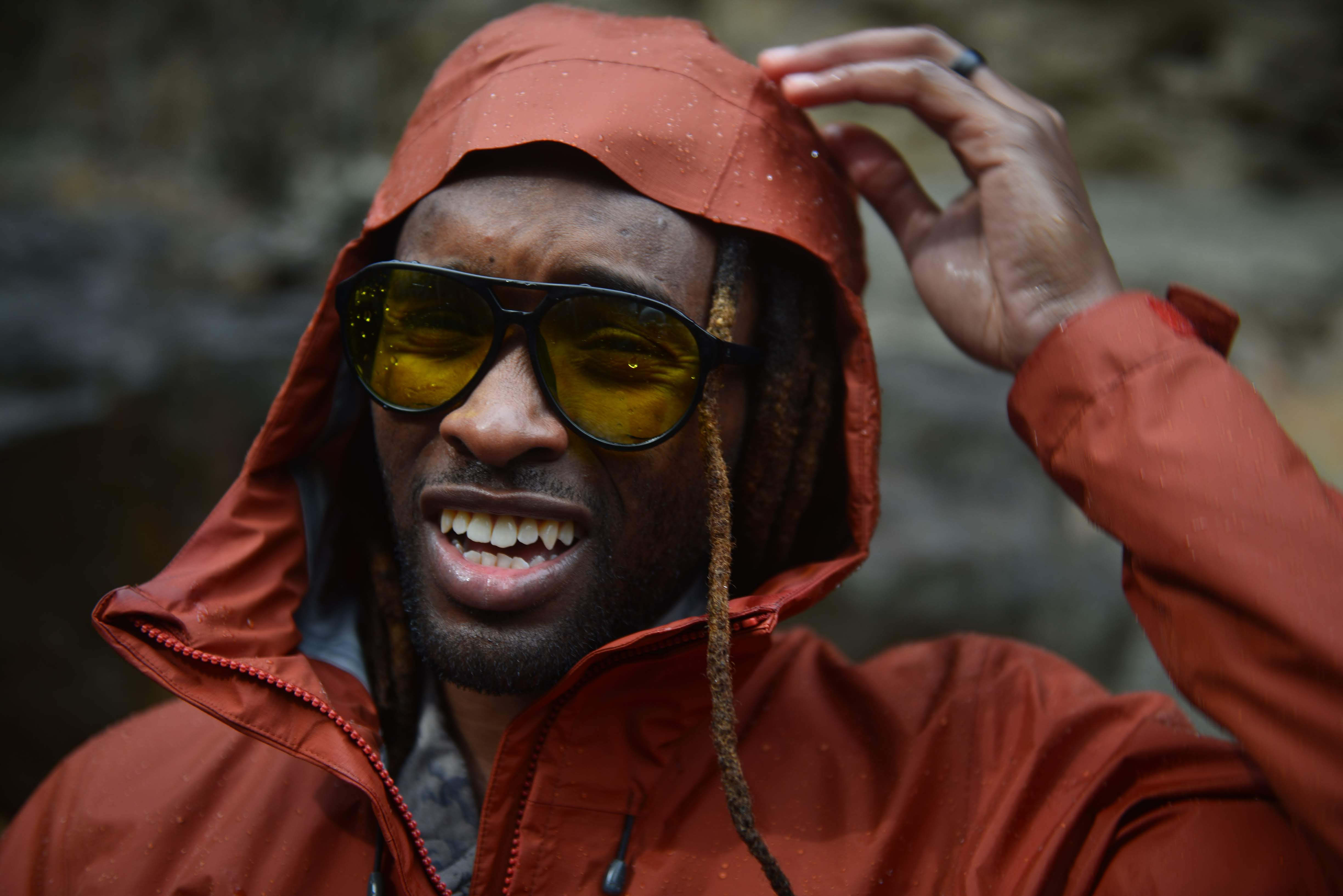Ron Griswell Has a Message for Black College Students: The Outdoors Are For You Too

'Cliford Mervil'
Ronald Griswell’s first encounter with the outdoors left him awestruck—and frustrated. His family was on a road trip when his parents stopped the car at an overlook on the Blue Ridge Parkway to admire the rolling mountains in the distance. For young Ron, however, looking wasn’t enough. He wanted to get out and explore. That memory, he says now, still inspires him to hit the trail today—and to give others the chance to do the same.
Griswell is the founder and CEO of HBCUs Outside, a non-profit organization dedicated to giving students at historically Black colleges and universities the opportunities and the means necessary to explore the outdoors by organizing excursions, providing access to gear, and connecting outdoor-minded Black students to one another. Two years after its foundation at North Carolina A&T State University, the organization is relaunching nationwide this month.
While “the trail doesn’t discriminate” is a common refrain, studies show that Black Americans recreate outdoors at a disproportionately low rate. According to a 2019 report by the Outdoor Foundation, 75 percent of all moderate outdoor participants in the U.S. are Caucasian while only 8 percent are African-American. (The survey defined a “moderate participant” as someone who recreated outdoors once a month.) Less than 30 percent of college-aged Black people (ages 18 to 24) participate in outdoor activities, compared to 50 to 60 percent of college-aged Caucasians, Asian people and Latinx people. The reasons for that low participation rate are numerous, and include affordability, access to trailheads, and discrimination on the trail.
Ron’s inspiration for HBCUs Outside came from his own experiences as a Black man in the outdoors. After that initial experience in the Blue Ridge Mountains, Ron was infatuated with nature: He attended summer camp every year and dreamed of one day coming back as a counselor.
As he got older, though, Ron’s relationship with the outdoors hit a few bumps. In high school, Ron says, his friends didn’t understand his infatuation with wild spaces, calling it “white people stuff.” At the same time, Ron realized he never saw people of color, let alone Black people, in any of the outdoor shows he watched.
“Even though I knew the outdoors brought me joy, I took a couple steps back,” says Ron. “It was like, wow, I’m interested in these things, but being interested in these things is calling into question my Blackness.”
He kept his distance from the outdoors until his third year at A&T, when it dawned on him that none of his decisions felt like his own anymore. He remembered how much joy the outdoors brought him as a kid, and he knew he had to get back outside. This time, he didn’t let old doubts creep in.
“I don’t care that this industry is flooded by white people and these things seem elitist,” he said, “I need to do this for my own personal healing, for my own joy.”
In search of that joy, Griswell left school and moved to Minneapolis, where he worked as an intern for an outdoor tourism company called Wilderness Inquiry. What was supposed to be a year off turned into three years leading rafting, kayaking, and camping trips around the country. It was a transformative experience, but no matter where he went, one thing was clear: He was one of the few people he met in the backcountry who looked like him.
It was upon returning to A&T that Griswell came up with the idea that would eventually become HBCUs Outside. Today, the organization focuses on three goals. First, it fosters local experiences—hiking workshops and skill-building meetups, as well as hikes where students interested in the outdoors can meet. Second, it’s building a gear library in Elizabeth City, a North Carolina town located near three HBCUs, where students can borrow equipment at affordable prices. (The organization is also working with Backcountry.com to ship to students who aren’t in the area. Third, HBCUs Outside organizes full-fledged trips to both domestic locations and life-list destinations like Kilimanjaro.
Off-campus, HBCUs Outside is encouraging the industry to invest in and recruit from HBCUs. According to Griswell, most major outdoor companies don’t recruit at HBCUs even though they regularly visit nearby majority-white institutions. Once the internal makeup and culture of the industry starts to change, he believes, companies will be better-placed to serve consumers of color.
“People have to see that representation and it has to start somewhere,” said Ron. “I think HBCUs are the perfect place for that.”
HBCUs Outdoors’ relaunch will kick off with #BlackToTheTrails5k, a virtual race scheduled to begin on September 19—Global Trail Running Day— and go through September 27. Participants can register alone or as a team, and can complete their race any time within that window, whether it be by running, walking, hiking, or using an adaptive device.
For Griswell and HBCUs Outside, getting a few college students to hit the trail is just the start. Eventually, he hopes that the organization will give students the resources and support they need to choose their own path forward without succumbing to the pressure to walk away from the wilderness like he did.
“Blackness can be about all these things that it’s stereotypically about,” he says, “but it can also be about getting outside.”